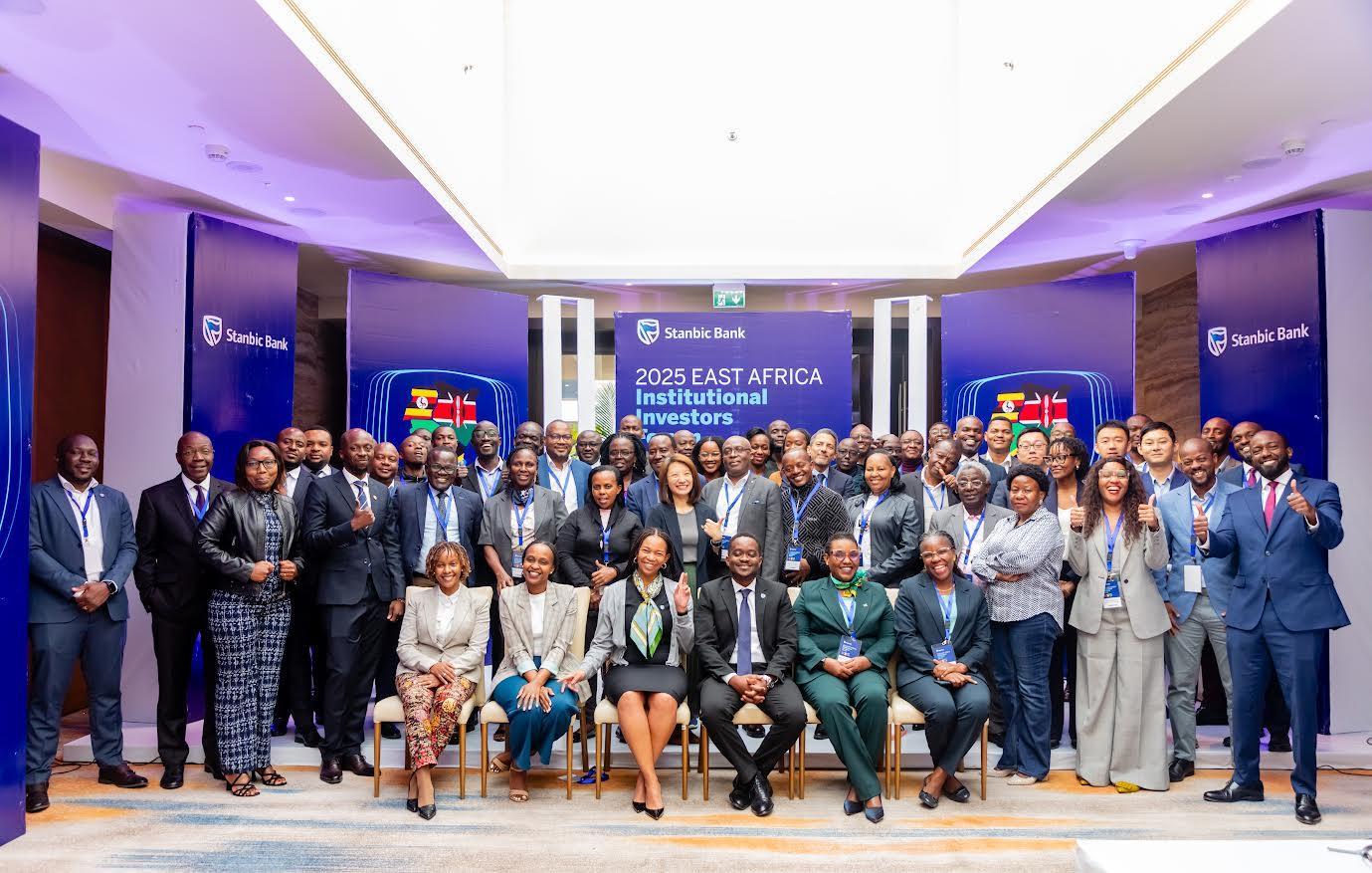Africa-Press – Uganda. Regional affiliates of Standard Bank Group—Stanbic Bank Kenya, Uganda, and Tanzania—have convened a high-level forum aimed at unlocking domestic capital to bridge the East African Community’s (EAC) growing infrastructure deficit, currently estimated at $42 billion annually.
The two-day 2025 East Africa Institutional Investors Forum, held in Arusha, brought together key stakeholders including institutional investors, policymakers, regulators, and financial sector leaders to explore alternative financing for large-scale infrastructure projects vital to the region’s development.
Speaking at the forum’s opening, Aime Uwase, Director of Planning at the EAC Secretariat, stressed the need to reduce reliance on external funding and to strengthen regional economic resilience.
“A robust infrastructure network is foundational to regional integration. Unlocking domestic capital allows us to diversify funding sources while boosting our economic independence,” Uwase said.
The discussions focused on transitioning domestic capital from passive reserves into strategic investments in transportation, energy, and communication infrastructure.
Zoya Sisulu, Sector Head of the Financial Institutions Group at Standard Bank, underscored the forum’s importance:
“All the critical players are in the room—regulators, asset owners, and allocators—best positioned to resolve market inefficiencies and drive infrastructure development in East Africa.”
Michael Sseguya, Head of Financial Institutions Group for Corporate and Investment Banking at Stanbic Bank Uganda, noted the forum aimed to redirect investments beyond traditional treasury instruments.
“We are encouraging investors to consider commercial real estate and infrastructure—sectors that are key to regional transformation. The goal is to support governments in mobilising new capital flows,” he said.
Benedict Nkini, Vice President for Financial Institutions at Stanbic Bank Tanzania, added that despite ample private capital held by commercial banks, fund managers, and asset managers in the region, strategic frameworks are needed to channel it into infrastructure.
“This forum serves as a platform to align financiers, development banks, and regulators to accelerate infrastructure financing,” Nkini said.
However, participants also raised concerns about risk management. Alex Rumanyika, Head of Strategy at Uganda’s National Social Security Fund (NSSF), noted the delicate balance pension funds must strike between investment opportunity and fiduciary responsibility.
“Safety is our top priority. A potential solution could be a tradable infrastructure instrument developed in partnership with the Trade and Development Bank. That would make it easier for long-term investors like pension funds to engage,” he explained.
Challenges cited include regulatory unpredictability, limited transparency, and political interference, all of which hinder the effective mobilisation of domestic savings into public infrastructure.
Mphokolo Makara, Executive Head of Energy and Infrastructure Financing-East Africa at Stanbic Bank, concluded the forum by urging capital providers to deepen their understanding of project risks and align them with their investment mandates.
“We must understand our risk appetite in the context of development goals to fully back East Africa’s infrastructure agenda,” he said.
The forum underscored a growing consensus: that local capital, if strategically mobilised, can power East Africa’s next chapter of growth and integration.
For More News And Analysis About Uganda Follow Africa-Press






